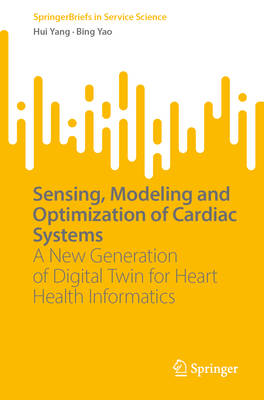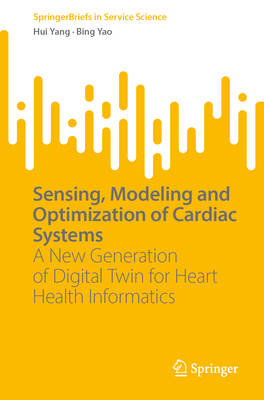
- Afhalen na 1 uur in een winkel met voorraad
- Gratis thuislevering in België vanaf € 30
- Ruim aanbod met 7 miljoen producten
- Afhalen na 1 uur in een winkel met voorraad
- Gratis thuislevering in België vanaf € 30
- Ruim aanbod met 7 miljoen producten
Omschrijving
This book reviews the development of physics-based modeling and sensor-based data fusion for optimizing medical decision making in connection with spatiotemporal cardiovascular disease processes. To improve cardiac care services and patients' quality of life, it is very important to detect heart diseases early and optimize medical decision making. This book introduces recent research advances in machine learning, physics-based modeling, and simulation optimization to fully exploit medical data and promote the data-driven and simulation-guided diagnosis and treatment of heart disease. Specifically, it focuses on three major topics: computer modeling of cardiovascular systems, physiological signal processing for disease diagnostics and prognostics, and simulation optimization in medical decision making. It provides a comprehensive overview of recent advances in personalized cardiac modeling by integrating physics-based knowledge of the cardiovascular system with machine learning and multi-source medical data. It also discusses the state-of-the-art in electrocardiogram (ECG) signal processing for the identification of disease-altered cardiac dynamics. Lastly, it introduces readers to the early steps of optimal decision making based on the integration of sensor-based learning and simulation optimization in the context of cardiac surgeries.
This book will be of interest to researchers and scholars in the fields of biomedical engineering, systems engineering and operations research, as well as professionals working in the medical sciences.
Specificaties
Betrokkenen
- Auteur(s):
- Uitgeverij:
Inhoud
- Aantal bladzijden:
- 88
- Taal:
- Engels
- Reeks:
Eigenschappen
- Productcode (EAN):
- 9783031359514
- Verschijningsdatum:
- 19/08/2023
- Uitvoering:
- Paperback
- Formaat:
- Trade paperback (VS)
- Afmetingen:
- 156 mm x 234 mm
- Gewicht:
- 149 g

Alleen bij Standaard Boekhandel
Beoordelingen
We publiceren alleen reviews die voldoen aan de voorwaarden voor reviews. Bekijk onze voorwaarden voor reviews.











